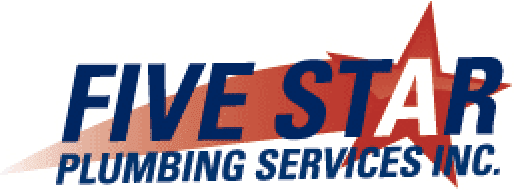If you’ve always lived in homes that were hooked into the municipal water system, you may have some fears or questions about buying a home with a well. The good news is most water wells are safe, and people swear that well water tastes better than municipal water. Over 21 million homes in the United States rely on private water wells for their drinking water. In Maryland, more than two million people get their water from wells.
So, say you’ve fallen in love with the house and the property, the price, and everything, but you’re still wondering about the well. By asking a number of questions, you should be able to make an informed decision. If you do decide to make an offer on a property with a well, we highly recommend you to hire a licensed plumber to do a complete inspection of the well and all of its components. We also recommend getting a test done on the well water itself to ensure that everything is okay. This way, you know exactly what you’re dealing with.
Before you purchase a home with a private well, be advised that you, as the homeowner, would be responsible for maintaining the well and ensuring the water is safe to drink. An annual inspection and annual water testing is recommended.
Any seller of a property with a private well should be able to answer the following questions, and provide documentation to back up their answers. It’s best to ask these questions before signing on the dotted line.
Questions to Ask About the Well System, Components and Functionality
- Was the well drilled? When? If it was not drilled, what was the original method of construction, and is it up to current community and state codes?
- When was the well drilled or constructed, and has it been in continuous service since then?
- How deep is the well?
- Where is the physical location of the well?
- Is the soil around the well head built up or raised to prevent puddling and to divert run-off? Contamination often occurs around the wellhead. Run-off can enter the well and contaminate the water.
- Are there any holes, or voids in the soil around the wellhead which could allow run-off to enter?
- Is the wellhead visible and above ground?
- Are there any permanent structures (sheds, pump houses) located within 10-feet of the wellhead? It’s important to have access to the wellhead if it needs work.
- Does the well location meet the minimum distance standards from any contamination sources as outlined by state and local regulations?
- According to the well records, are there any abandoned wells located on the property?
- Do you have all of the well records to turn over to me if I buy your property?
- Do you have the original well log, previous and current water testing results, and well maintenance records?
- How often has the well been inspected? Do you have a record of inspections and any repairs or maintenance performed? How often has water quality testing been performed?
- Is the lining of your well casing 12 or more inches above ground level? It’s important to place your well casing one to two feet about the highest recorded flood level. Above ground flooding can seriously contaminate your ground water source.
- In a visual inspection, can you see holes or cracks in the well casing?
- Does the well casing depth meet state and local codes? This information should be in the well log.
- Is the well cap vermin-proof, watertight and secured to the well casing?
- Is there any visible corrosion at the pump fittings and/or the pressure tank?
- Have you recently tested the pressure tank? What were the results? The pressure tank should be periodically tested for pump cut-in pressure, cut-out pressure, and the pressure differential.
- How long does it take for the well pump to go from the low limit to the high limit with no water turned on or running in the house?
- Does the home have any point-of-use or point-of-entry water treatment systems? Make sure any information about the water treatment system is recorded in the maintenance log.
- What is the gallon per minute flow capacity of your well?
If you don’t feel comfortable asking all of these questions, you can ask to see the well log, which should contain many, if not all of the answers. You can also hire a licensed plumber who is experienced with wells, to perform an inspection for you. Remember, home inspectors are not plumbers, and wouldn’t necessarily catch potential problems with the water well system.
At Five Star Plumbing, we have been repairing and maintaining private water wells for more than 25 years. We serve residential and commercial customers in Harford county, Baltimore County, Cecil County, and Howard County. If you need a plumbing inspection, well water testing, well pump repair or well pump replacement, call us today at 410-836-0118.
